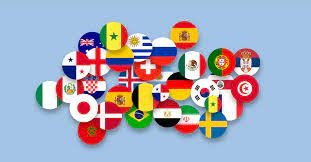
This year in May I attended the Polyglot Gathering Online 2021, a big international event for polyglots and language lovers. In this event talks, presentations and cultural activities are held, and everything is related to languages. During the event, participants display their love and exercise their passion for cultures and languages. They share tips and practice many languages and they discuss, listen, learn and socialize with one another.
From the 19th to the 24th of May I spent more than 20 hours on the Polyglot Gathering platform. I attended a lot of interesting talks and had conversations in English, Spanish, German and Italian with other foreign participants in the Practice Rooms.
There are many interesting things that I learnt from this experience.
One of the talks I found more interesting was called “The many faces of code switching” and it outlined some socio-pragmatical reasons why we go from a language to another. The talk was particularly interesting to me because I could see those principles being applied during conversations in Non-Native contexts. Here are some:
- expressive language – in order to be more expressive, people would pronounce oaths and exclamations in their mother tongue
- expression of identity – national identity and affiliation with a group is best displayed through the use of L1 expressions. It often happens when speakers talk about elements from their culture: instead of choosing the direct equivalent in the target language, they prefer to use the original name, usually with a translation or explanation following (translanguaging).
- forgetting terms – it was very frequent that, when someone did not remember a term in the target language, they said it in English, hoping that someone else would give them the correct translation.
This talk and the reflections that followed, made me understand how translanguaging and code switching are important in multiethnic contexts. Far from being a deficiency on the part of the speaker, they enrich conversations and represent a wider repertoire to exploit.
Hi guys! I hope that my report is clear and interesting. Any suggestions - stylistic and grammatical - will be valued. Thank you all!
Very interesting read, Elsa, thank you for sharing this :)
Thanks!